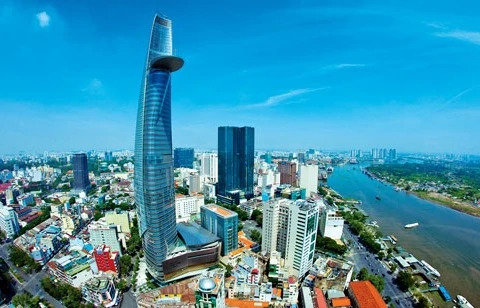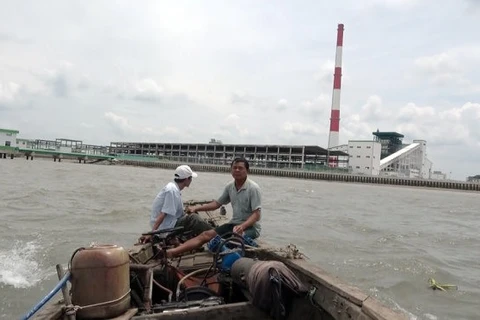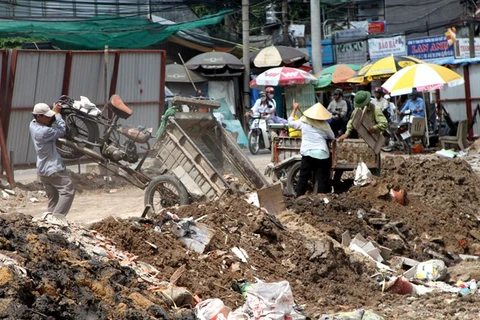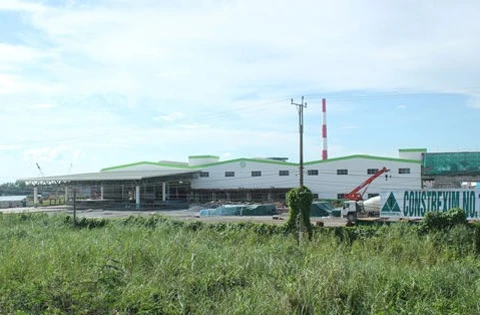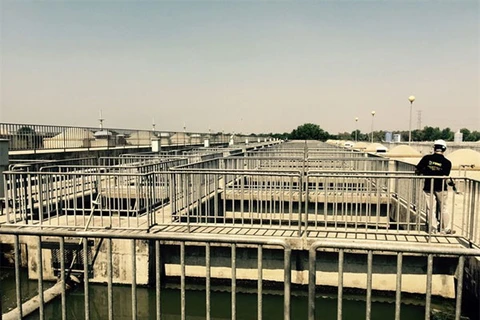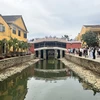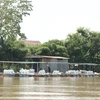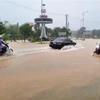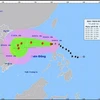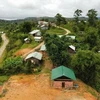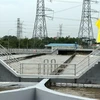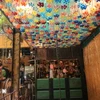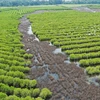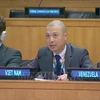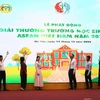HCM City (VNA) – Ho Chi Minh City has advanced to this month an extraordinary meeting to discuss waste treatment and environmental pollution after National Assembly deputies from the city expressed concern over the issues, a leader said.
Nguyen Thi Quyet Tam, Chairwoman of the municipal People’s Council, said the meeting on urban environment and waste management was initially planned to be held at the end of this year.
According to the People’s Council, the city generates 7,500 tonnes of waste a day, which are sent to Da Phuoc Waste Treatment complex in Binh Chanh District for treatment.
NA deputy Le Nguyen Minh Quang said the city should have more than one waste treatment facility and not rely solely on Da Phuoc. He called on the People’s Committee to reopen the Phuoc Hiep waste treatment plant in Cu Chi district, which has been unused for many years.
But Nguyen Toan Thang, director of the Department of Natural Resources and Environment, said only one waste treatment plant at Phuoc Hiep was closed due to technical reasons. Two other facilities run by the Vietstar and Tam Sinh Nghia companies are treating around 500 tonnes daily, he said. The city also plans to build a waste treatment plant in Long An province this year, he added.
The city’s waste increases every year, with most of it now buried, affecting the environment, experts said. Besides the stench, water leaks from landfills have also raised environmental concerns.
For instance, Da Phuoc has created a health hazard and detracted from the investment environment of District 7.
Dr Le Van Khoa of the HCM City Polytechnic University said the problem is the city lacks technologies to classify waste before treatment.
Since 2004 the city has been running a pilot programme to classify solid wastes before treatment in Districts 1, 3, 5, 6, 7, 8, 9, 10, Binh Thanh, Phu Nhuan, and Cu Chi and at wholesale markets. But this has not proven too effective since only 25 percent of solid wastes is classified.
The city also lacks the funds required to create infrastructure for solid-waste classification systems.
Experts said that in most developed countries, domestic and industrial wastes are carefully categorised and treated or recycled depending on whether they are organic or inorganic.
Khoa said the city should make environmental education mandatory to improve public awareness of the need to protect the environment by treating waste properly.-VNA
Nguyen Thi Quyet Tam, Chairwoman of the municipal People’s Council, said the meeting on urban environment and waste management was initially planned to be held at the end of this year.
According to the People’s Council, the city generates 7,500 tonnes of waste a day, which are sent to Da Phuoc Waste Treatment complex in Binh Chanh District for treatment.
NA deputy Le Nguyen Minh Quang said the city should have more than one waste treatment facility and not rely solely on Da Phuoc. He called on the People’s Committee to reopen the Phuoc Hiep waste treatment plant in Cu Chi district, which has been unused for many years.
But Nguyen Toan Thang, director of the Department of Natural Resources and Environment, said only one waste treatment plant at Phuoc Hiep was closed due to technical reasons. Two other facilities run by the Vietstar and Tam Sinh Nghia companies are treating around 500 tonnes daily, he said. The city also plans to build a waste treatment plant in Long An province this year, he added.
The city’s waste increases every year, with most of it now buried, affecting the environment, experts said. Besides the stench, water leaks from landfills have also raised environmental concerns.
For instance, Da Phuoc has created a health hazard and detracted from the investment environment of District 7.
Dr Le Van Khoa of the HCM City Polytechnic University said the problem is the city lacks technologies to classify waste before treatment.
Since 2004 the city has been running a pilot programme to classify solid wastes before treatment in Districts 1, 3, 5, 6, 7, 8, 9, 10, Binh Thanh, Phu Nhuan, and Cu Chi and at wholesale markets. But this has not proven too effective since only 25 percent of solid wastes is classified.
The city also lacks the funds required to create infrastructure for solid-waste classification systems.
Experts said that in most developed countries, domestic and industrial wastes are carefully categorised and treated or recycled depending on whether they are organic or inorganic.
Khoa said the city should make environmental education mandatory to improve public awareness of the need to protect the environment by treating waste properly.-VNA
VNA

